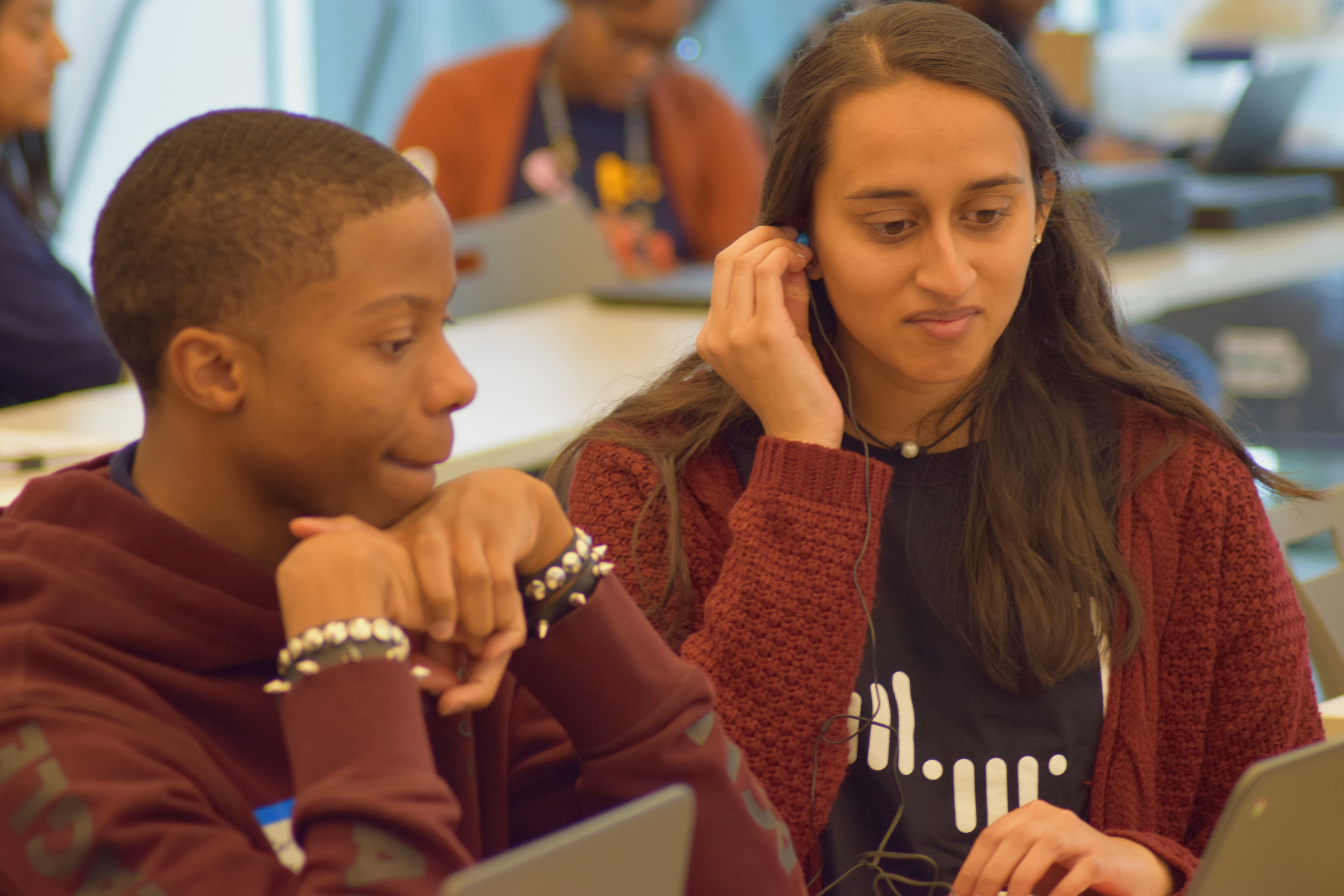
Georgia Institute of Technology’s innovative educational platform EarSketch reached a milestone this month—one million users. Since launching in 2011, the free EarSketch platform has been used by students in all 50 U.S. states and in more than 100 countries. EarSketch is designed to teach students to code in Python or JavaScript through music and creative discovery.
Georgia Institute of Technology’s innovative educational platform EarSketch reached a milestone this month—one million users. Since launching in 2011, the free EarSketch platform has been used by students in all 50 U.S. states and in more than 100 countries. The music/coding platform was created at Georgia Tech by School of Music Chair Jason Freeman and Ivan Allen College of Liberal Arts Professor Brian Magerko and is designed to teach students to code in Python or JavaScript through music and creative discovery.
“It has been amazing to see how EarSketch has inspired so many students to explore computer science by harnessing the power of music as a creative and authentic mode of expression,” Freeman said. “We began creating EarSketch by working with just one teacher and his students. I am thrilled that educators have found value in our approach and helped to spread the word to help us achieve a worldwide impact on students.”
Magerko, who serves as a professor of digital media in the School of Literature, Media, and Communication, said, “Our goal has been to make CS education more relevant, accessible, and expressive to learners in the US. Seeing this project go from a rough idea on a whiteboard to (over!) a million learners has been one of the most amazing experiences in my career. I'm incredibly proud of all the EarSketch users who learned to make music through code—and make code through music."
One of the ways EarSketch has been implemented has been through the “Your Voice is Power” (YVIP) competition in which students are using computer science and coding techniques such as looping, conditionals, and user-defined functions to create remixes using music and sound samples from the EarSketch library. Now in its third year, the competition is a partnership between Pharrell Williams’ education equity nonprofit YELLOW, Amazon Future Engineer, and Georgia Tech. The project-based YVIP curriculum and national remix competition introduce the fundamentals of computer science to middle and high school students through an exploration of music and social change.
"When I was in high school, I was advised not to take AP Computer Science. That has fueled my passion for EarSketch and ‘Your Voice is Power’ and changing the conversation around who belongs in computing,” said Tech's Senior Research Engineer Roxanne Moore, who leads the “Your Voice is Power” initiative and partnership with Amazon. “I can’t wait to see how many more students will use EarSketch going forward and how those students will create a more just and equitable future for all of us. Georgia Tech is proud of you!”
The program is part of Amazon’s commitment to computer science, and science, technology, engineering, and mathematics (STEM) education. Computer science, as a career pathway, is expected to grow twice as fast as the rest of the labor market, offering wages greater than the median wage for all occupations in the United States according to the U.S. Bureau of Labor Statistics. And, while the number of diverse students obtaining STEM degrees has increased over the last two decades, they remain underrepresented in the nation’s science and engineering enterprises.
“We’re honored to continue our collaboration with Georgia Tech and Pharrell to help students explore learning experiences that highlight how music, computer science, and entrepreneurship can advance social justice and equity,” said Victor Reinoso, global director of Amazon’s philanthropic education initiatives. “Our work alongside Amazon Music has enlisted inspirational artists to help students from historically underrepresented communities build life-changing skills to propel their futures.”
EarSketch has also received support from the National Science Foundation, which awarded a $3 million grant to the team in 2014 and a further $2.1 million grant in 2018 to add an artificial intelligence-driven “co-creative” tab to the platform. The project also has received funding from the Scott Hudgens Family Foundation, the Arthur M. Blank Family Foundation, and the Google Inc. Fund of Tides Foundation. EarSketch was highlighted by the White House in 2016 among its Computer Science Education Week (CSEdWeek) national initiatives.
—Randy Trammell, CEISMC Communications